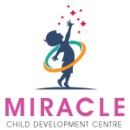Miracle Early Intervention Clinic, Autism and Child Development Centre offers Music Therapy
| Music therapy is an interpersonal process in which the trained music therapist uses music and all of its facets-physical, emotional, mental, social, aesthetic and spiritual. To help the client to Improve their state.
Indications
Functions Of Music
|
 |
Music Therapy For Autistic Children
Music Therapy is the therapeutic use of rhythm, sound and instruments to facilitate communication, better understanding, sensory processing, social interaction and improved attention spans In Children with Autism.
Music therapy for autism uses music to address physical, emotional, cognitive and social needs of the children with Autism. This can be done mostly by stimulating the senses.
How Does Music Therapy Help Children With Autism?
- Even though music therapy is a complete therapy in itself, it can also go hand in hand with other therapies your child may be receiving.
- Music Therapy can accelerate other therapies that the child is undergoing.
- Music Therapy techniques can facilitate and support the child to communicate, break the tendency of isolation, and engage your child in external experiences.
- Children with autism learn to relate to others, participating in group music and increments of gathering around a single instrument and sometimes passing and sharing instruments with each other and taking turns to play it.
- Paying attention to listening and singing along in coordination with others can increase interaction and concentration.
- Children with autism learn along with others through fun musical activities and non-evasive games by creating a supportive environment to create bonds in a healthy way.
- Paying attention for longer durations until an instrument is being played increases the capacity to hold attention and receive information.
- Children who find it difficult to understand and follow commands and communicate non-verbally will have problems understanding even body language. In such cases, music therapy is found to increase the ability to associate certain Sounds with communication of needs, as it helps in connecting the auditory and motor functions of the brain, thereby helping them in understanding the verbal commands.
- By pairing music with actions and with repetitive training, the pathways of the brain, which are related to speech, can be trained to function according to the child’s needs.
- Music with a steady rhythm, such as classical music, is found to be one of the most effective ways to reduce anxiety in autistic children, as the next beat is predictable.
- It has been observed scientifically that children with autism can use improvised music to express their emotions effectively, thereby reducing the stress hormones increasing in oxytocin and creating better trust and bonding.

